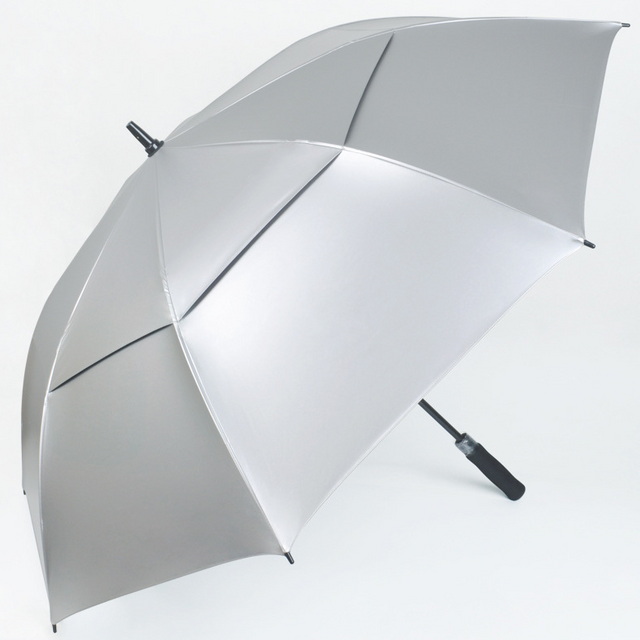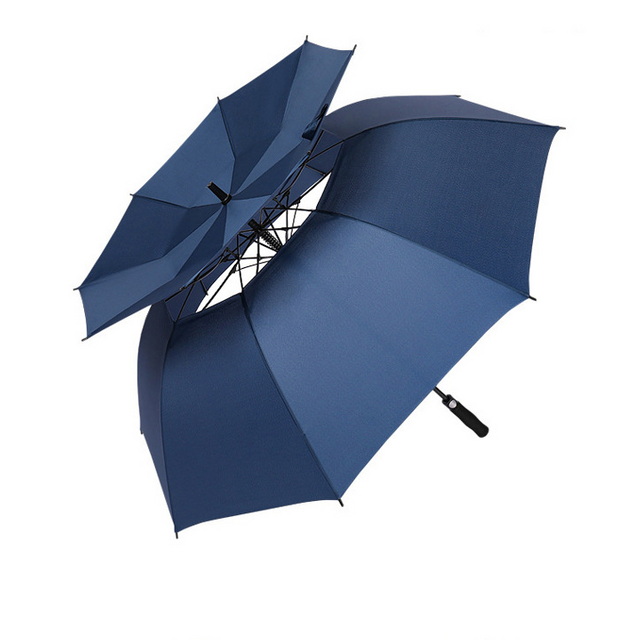Views: 222 Author: Loretta Publish Time: 2025-10-31 Origin: Site

Content Menu
● Introduction: The Golf Umbrella Industry in Japan
● Defining Features of Japanese Golf Umbrellas
● The Manufacturing Process: Where Craft and Automation Intersect
>> Step 1: Design and Material Selection
>> Step 2: Fabric Cutting and Preparation
>> Step 3: Canopy Panel Assembly and Overlocking
>> Step 4: Frame Structure and Integration
>> Step 5: Canopy Affixing and Tensioning
>> Step 6: Handles, Final Assembly, and Branding
>> Step 7: Rigorous Quality Control and Packaging
● Traditional Craftsmanship Meets Modern Technology
● Japan's Leading OEM and ODM Golf Umbrella Suppliers
>> Waterfront: The Innovation Pioneer
>> Funakubo Orimono: Bridging Heritage and Custom Manufacturing
>> Modern OEM Factories and International Exporters
● Customization and Sourcing for International Clients
● Innovations Shaping the Future of Golf Umbrella Manufacturing
>> 2. How do Japanese suppliers balance artisan tradition with modern bulk OEM production?
>> 3. Can Japanese golf umbrella factories meet strict sustainability standards?
>> 4. What customization options are available for international brands?
>> 5. Are Japanese golf umbrella suppliers equipped to handle urgent and large-scale overseas orders?
Japan's reputation for engineering excellence is well reflected in its golf umbrella sector. Professional golfers and everyday users alike demand umbrellas that can withstand sudden downpours, gusty winds, and harsh UV rays without sacrificing comfort or brand visibility. As a result, Japanese golf umbrella manufacturers and suppliers have earned the trust of leading global brands, retailers, and wholesalers with their relentless focus on quality, customizability, and timely delivery to international markets.[1]

What sets top Japanese golf umbrellas apart is an unwavering commitment to user experience and durability. Whether for casual recreation or professional use, advanced features include:
- Wide canopy spans for broad coverage (often 60 inches or more)
- Double or vented canopies to mitigate wind inversion
- Premium waterproof and UV-blocking fabrics
- Durable fiberglass or reinforced aluminum frames
- Ergonomically designed handles and automatic opening systems
- High-fidelity customization for logos, colors, and promotional branding
Working with experienced Golf Umbrella Suppliers in Japan guarantees access to a comprehensive palette of specifications that reconcile aesthetic needs with core functionality, benefiting both licensed brands and specialized OEM clients.[9][10][1]
All great umbrellas begin with precise design. Designers and engineers collaborate to finalize size, silhouette, and branding requirements, choosing from high-performance materials such as water-repellent polyester, RPET from recycled bottles, or specialized blends for premium and eco-conscious clients.[5][1]
Precision slitting machines cut large fabric rolls into customized panel widths, dictated by the intended shape and size of the umbrella. The cutting process, a blend of CNC-guided automation and skilled handwork, ensures even the largest golf umbrellas achieve uniform canopy tension and a flawless finish. The triangular panel pieces, called “koma,” display subtle curvature—a signature of Japanese craftsmanship remembered since the industry's early days.[2][3]
Next, each canopy panel receives an overlocked edge, preventing fraying and enhancing moisture resistance. Craftsmen (and women) skillfully align and sew the triangles together with color-matched or contrasting threads, forming a seamless, aesthetically refined whole. Double-stitched seams at stress points ensure long-term durability, essential for demanding environments like windblown foggy fairways.[1][2][5]
Golf umbrella frames are engineered for strength-to-weight optimization. Ribs and shafts—commonly constructed from fiberglass, carbon fiber, or aluminum—are machined to exact lengths and assembled to withstand repeated flexing and high winds. The process involves combining manual fitting precision with robotic alignment for large volume orders.[5]
With the skeleton ready, the canopy is tensioned over the frame, sewn tightly at apex and rib tips. The canopy must be taut yet flexible, with the “skyline” stitching and “mouth-closing” operation (where canopy meets ribs) demanding extreme care. Misalignments in this critical step can compromise open/close action and resilience against the elements.[3][2]
Handles are attached by creating micro-grooves in the shaft, then gluing and threading for secure fixation. Golf umbrella handles range from traditional wooden styles to modern rubberized grips, with many OEMs offering custom molding and ergonomic options. Final branding—such as logo printing, digital transfer, or embroidery—is completed after the main assembly and passes through a final QC step for visual and tactile quality assessment.[1][5]
Japanese factories apply comprehensive inspection processes—opening and closing each umbrella multiple times, visually checking seams, and pressure-testing waterproofing. Final packaging may feature recycled materials for sustainability, and logistics teams ensure products reach clients worldwide with advanced tracking and compliance documentation.[5][1]

Despite advances in automation, much of Japanese umbrella manufacturing, especially in premium golf umbrellas, remains rooted in artisan skills. Leading heritage workshops like Funakubo Orimono uphold methods such as hand-trimming panels to suit unique wooden molds, meticulous seam sewing, and the attachment of traditional parts:
- “Kikuza” (chrysanthemum seats)—waterproof cloth at the canopy tip
- “Jinbasa”—decorative elements for canopy apex
- “Tsuyusaki” and “tengari”—ornamental finishing details
These steps ensure that even the most modern OEM production lines retain a spirit of Japanese artistry, resulting in products that are not merely functional but inspire attachment and pride.[2][3]
As one of the largest domestic brands, Waterfront has pioneered the integration of automated QC with hand-finished touches. Their offerings frequently feature advanced UV-blocking canopies and vibration-tested frames, with both ODM (original design manufacture) and white-label OEM capacity for global corporate customers. Waterfront's commitment to large-scale yet premium execution distinguishes them in both mass retail and bespoke business gifting channels.[11]
With nearly a century of experience, Funakubo Orimono expertly blends tradition and innovation. The company meets demand for both gender-neutral, classically inspired golf umbrellas and high-visibility, brand-customized models for clubs, tournaments, and promotional giveaways. This versatility is coupled with deep roots in Japanese handcraft and design aesthetics, ensuring a recognizable quality in every finished product.[11]
Numerous Japanese umbrella factories and partnered exporters fulfill OEM/ODM orders with low MOQs, flexibility in frame and canopy specs, and innovative decoration techniques. They often coordinate with factories in China and Southeast Asia for high-volume production, balancing cost efficiency with the meticulous QC expected from Japanese brands. Combined with BSCI and ISO certification, these relationships maintain Japan's reputation as a global sourcing hub for premium and bulk golf umbrellas.[12][13][1]
Whether a golf accessories startup or an established international wholesaler, buying direct from Japanese Golf Umbrella Suppliers and Manufacturers offers unique benefits. Key considerations include:
- OEM packages with fully custom panel colors, vented canopy engineering, and advanced logo treatments
- Sustainable options—RPET or recycled PET yardage, eco-friendly DWR (durable water repellent) finishes, compostable packaging, and zero-waste slitting methods
- Trial sampling and branded prototypes, allowing verification of canopy balance, seam strength, and logo clarity
- Dedicated export support, covering documentation, certificates, and preferential trade frameworks[9][12][1]
Industry events such as the Tokyo Gift Show and specialized golf industry exhibitions make it easy for buyers to connect with both major brands and boutique workshops, facilitating hands-on sample inspection and relationship building.
Japanese umbrella innovators are continuously pushing the boundaries of performance and sustainability:
- Frameworks using carbon fiber for reduced weight and increased resilience
- Double-layered, wind-vented designs that disperse sudden gusts without canopy inversion
- Fluorine-free waterproofing chemistry, addressing growing demand for PFAS-free products
- Smart umbrellas with future integration of sensors for wind alerts or geolocation
- Rapid prototyping and digital simulation for ergonomic grip testing and rib flex analysis
The push toward environmental responsibility is matched only by dedication to performance enhancement and bespoke branding—which collectively ensure Japanese golf umbrellas stay at the forefront of international demand.[11][1][5]
Through a dynamic mix of heritage craftsmanship and state-of-the-art automation, Japanese Golf Umbrella Manufacturers and Suppliers are global leaders in this specialized segment. OEM and ODM factories in Japan deliver not just robust, weatherproof products, but also tailored solutions that empower international brands, clubs, and event managers to distinguish themselves in style and substance. Whether you seek a luxury retail line, private label, or large-scale promotional giveaway, Japan's golf umbrella sector provides unmatched quality assurance, attention to design detail, and supply chain reliability for clients worldwide.

Buyers should prioritize manufacturers with a robust OEM track record, international certifications (ISO/BSCI), and demonstrated experience with logo customization and export logistics. Inspecting canopy workmanship, frame integrity, and branding samples is recommended before bulk purchase.[9][1]
While advanced machinery aids efficiency and uniformity for high-volume orders, artisans remain involved in critical steps such as fabric panel cutting, seam sewing, and handle attachment—preserving the spirit and legacy of traditional Japanese craftsmanship in every umbrella.[3][2]
Many now feature eco-friendly production lines, using RPET fabrics, PFAS-free waterproof treatments, and energy-efficient machinery—addressing both global environmental standards and customer demand for responsible sourcing.[1][11]
Options include full-spectrum canopy colors, vented double-canopy construction, personalized printing or embroidery, engraved handle caps, and unique accessories like reinforced carry sleeves or smart sensor integration, enabling brands to maximize both visibility and functionality.[9][1]
Yes. Most leading factories have dedicated export teams, scalable production arrangements (often via trusted cross-border facilities), and strong relationships with freight forwarders, allowing for rapid turnarounds and on-time delivery to nearly any global destination.[12][1]
[1](https://topumbrella.com/info/191)
[2](https://www.komiyakasa.jp/en/blogs/column/how-its-made)
[3](https://www.komiyakasa.jp/en/pages/how-its-made)
[4](https://www.youtube.com/watch?v=jcsXB1WlKcM)
[5](https://newji.ai/japan-industry/manufacturing-process-of-umbrellas-and-improvement-in-waterproofing-performance/)
[6](https://www.blueprintumbrella.com/about-us.html)
[7](https://www.madeumbrella.com/about/factory_profile.html)
[8](https://www.youtube.com/watch?v=dQkghj7HKcE)
[9](https://www.alibaba.com/product-detail/Japanese-Parasol-16-Bones-Strong-Wind_1600774323533.html)
[10](https://sunfoo.en.made-in-china.com/product/cJYRDBOHndhg/China-Wholesale-Luxury-16-Bones-Automatic-Japanese-Large-Rain-Wooden-Handle-Golf-Umbrella.html)
[11](https://kodawari-times.net/goods/parasols-available-in-japan/)
[12](https://www.alibaba.com/japan-umbrella-suppliers.html)
[13](https://www.volza.com/p/golf-umbrella/manufacturers/manufacturers-in-japan/)